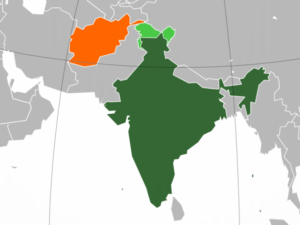By Shamil Abdullah
Not long ago, many experts in military, political, and academic circles warned that a nuclear conflict in South Asia—sparked by hostilities between India and Pakistan—could escalate into a global catastrophe. The reality, however, has been more restrained. Dr. Tariq Rauf Former Head of Verification and Security Policy in Vienna, Austria in his recent talk at the Islamabad Non-proliferation Conference 2024 argued that despite occasional skirmishes, neither India nor Pakistan has ever targeted each other’s nuclear facilities, energy grids, critical infrastructure, or strategic military sites. Instead, both countries have practiced caution, implementing nuclear confidence-building measures (CBMs) of Annual Exchange of Lists of Nuclear Installations between Pakistan and India aimed at preventing misunderstandings that could lead to an inadvertent nuclear exchange.
In stark contrast, two nuclear superpowers, the United States and Russia, have engaged in conflicts and proxy wars where strategic and critical infrastructures in Iraq, Libya, Syria, and now Ukraine have been deliberately targeted. Their actions are, metaphorically, “tickling the tail of the Promethean nuclear fire dragon,” creating the very risks they once feared would emerge in South Asia, Dr. Rauf added.
During the Iran-Iraq War, for instance, Iraq conducted five separate attacks on Iran’s unfinished Bushehr nuclear power plant, deliberately targeting nuclear infrastructure. Conversely, in South Asia, restraint has been notable, especially in Pakistan. During the 2019 Pulwama-Balakot incident, when India launched what it termed “surgical strikes” on Pakistan, Pakistan’s measured response, known as “Operation Swift Retort,” showcased restraint, particularly by avoiding escalation to nuclear or sensitive targets. Similarly, in 2022, when an Indian BrahMos missile accidentally entered Pakistani airspace and landed near Mian Channu, Pakistan responded calmly, avoiding severe retaliatory measures, underscoring its commitment to regional stability.
Similarly, Cyber threats pose significant risks to nuclear safety and security by potentially disrupting critical systems, stealing sensitive information, or manipulating operational controls. A successful cyberattack could compromise reactor safety mechanisms, disable security protocols, or expose confidential data, increasing the likelihood of unauthorized access or even radiological release. On the Korean Peninsula in 2014, a cyberattack targeted South Korea’s nuclear infrastructure, compromising sensitive information related to the Korea Hydro and Nuclear Power (KHNP) Company. The hackers accessed the personal data of 10,000 employees, reactor blueprints, operational manuals, electrical schematics, and radiation management protocols. Although South Korea attributed the attack to North Korea, officials emphasized that the breach did not affect the core control systems of the power plants, thus avoiding direct interference with plant operations.
In stark contrast, the Zaporizhzhia nuclear power plant in Ukraine has become a military target of conflict, with both Ukraine and Russia accusing each other of shelling the facility, raising the risks of a catastrophic nuclear accident. Moreover, the destruction of the Kakhovka Dam in 2023, which held a reservoir used to cool the Zaporizhzhia plant, has further exacerbated concerns about nuclear safety, with each side blaming the other for the dam’s destruction.
Similarly, shortly before Israel’s recent retaliation against Iran, there were discussions about a potential Israeli strike on Iranian nuclear facilities. However, Israel ultimately reassured the United States that it would focus on conventional military targets rather than nuclear sites, illustrating a nuanced approach even in tense geopolitical situations. This disparity in approaches to nuclear infrastructure highlights the varying levels of restraint exercised by different nuclear-armed states, with South Asia demonstrating a more cautious approach compared to the escalating risks observed in other global conflict zones.
If the global powers do not take decisive steps to establish meaningful controls over nuclear competition and military engagement, the nuclear order may become increasingly unstable, heightening the risk of accidental or intentional nuclear conflict. In stark contrast, India and Pakistan have demonstrated a measure of nuclear restraint through the 1988 Agreement on the Prohibition of Attack against Nuclear Installations and Facilities. This agreement, a significant confidence-building measure, mandates that each country annually shares a list of its nuclear installations with the other, reinforcing a mutual commitment to refrain from targeting these sites in any military conflict. This agreement not only helps prevent military escalation but also serves to protect civilian populations from the potentially catastrophic consequences of radioactive fallout.
In conclusion, great power competition intensifies threats to nuclear security by weakening cooperative safeguards, promoting advanced but vulnerable technologies, and incentivizing arms races that heighten the risk of accidents or intentional use. For powers like the United States and Russia, who possess far larger nuclear arsenals, adopting similar measures could catalyze further agreements aimed at de-escalation and transparency. By establishing direct communication, restraint agreements, and mutual inspection protocols, the two superpowers could work toward a more stable nuclear environment which as of yet does not seem likely.
The views expressed in this article are solely of the author, and do not necessarily reflect the views of The Global Politico.








